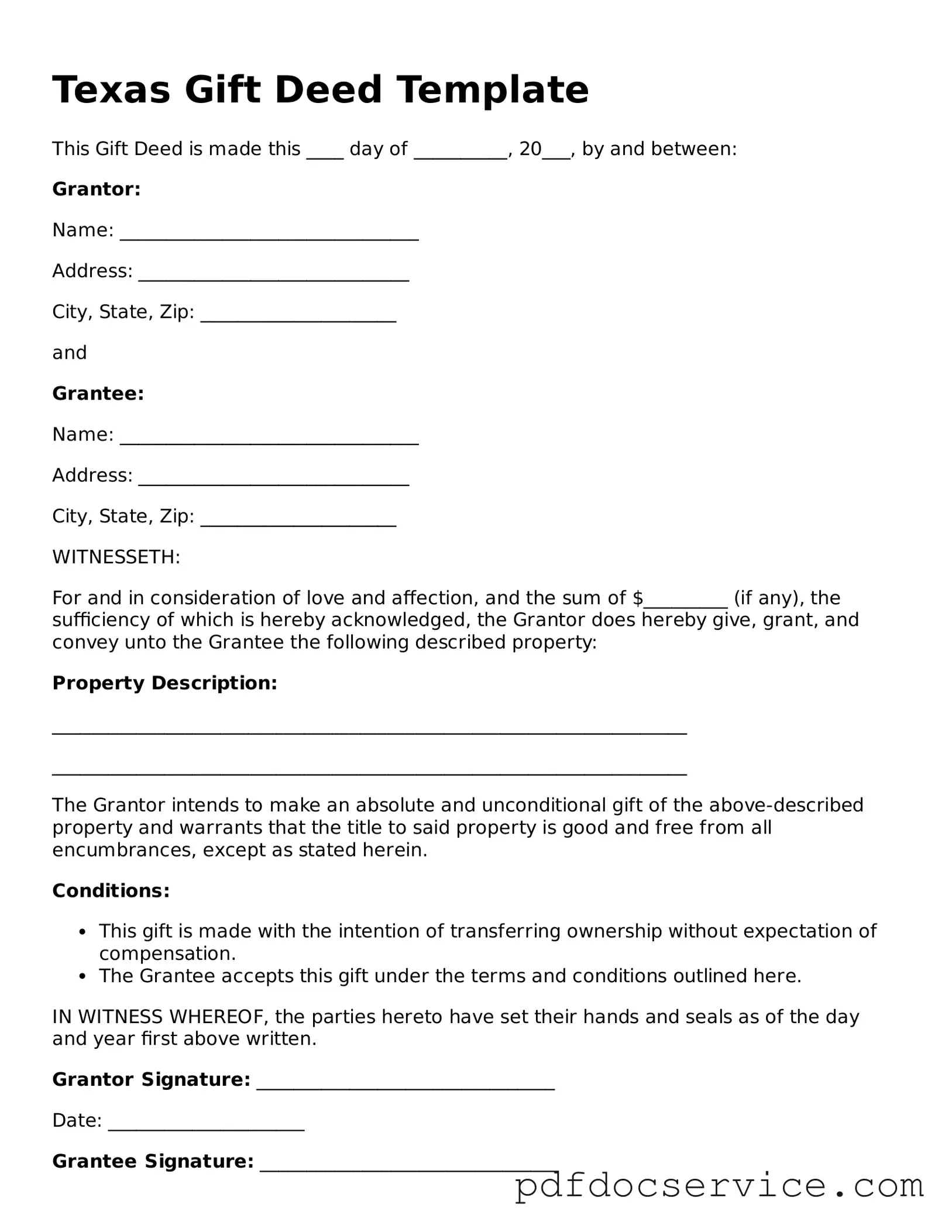Printable Gift Deed Template for Texas
A Texas Gift Deed form is a legal document used to transfer property ownership as a gift without any exchange of money. This form outlines the details of the property and the intentions of the giver. Understanding how to properly complete and file this form is essential for ensuring a smooth transfer process.
Open Gift Deed Editor

Printable Gift Deed Template for Texas
Open Gift Deed Editor

Open Gift Deed Editor
or
Get Gift Deed PDF
Finish the form now and be done
Finish Gift Deed online using simple edit, save, and download steps.